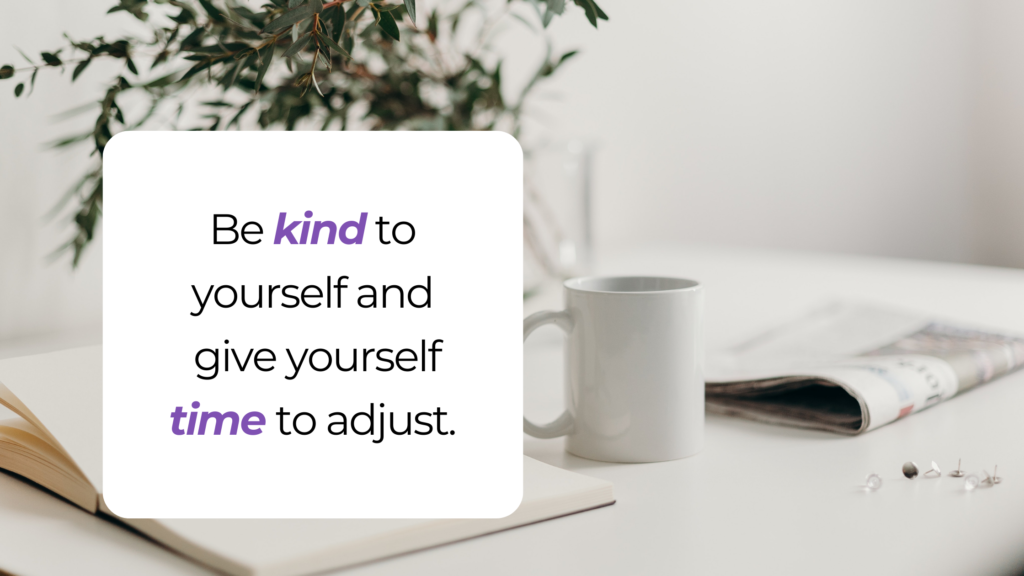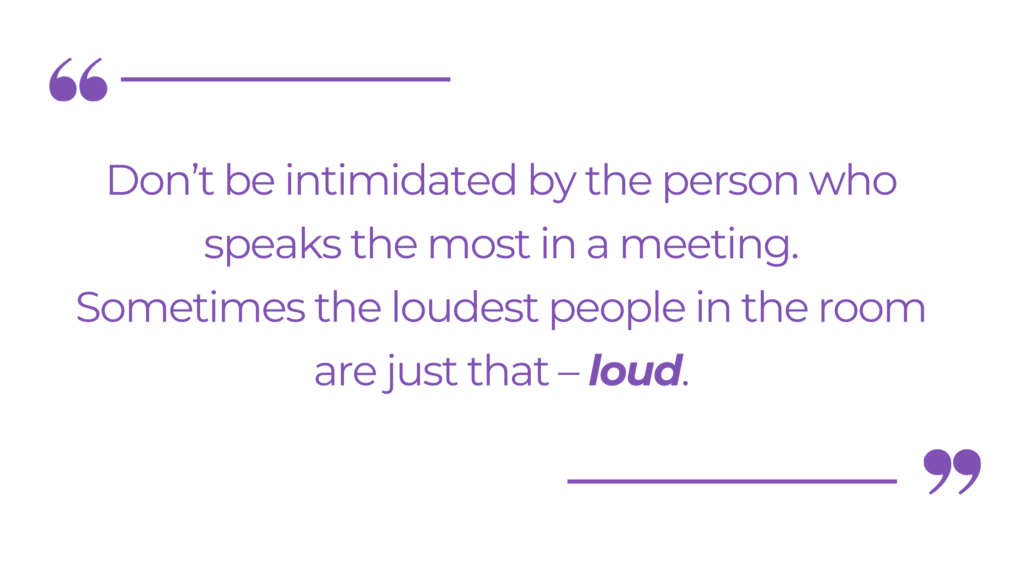
Life After The PhD: 9 Lessons From The Industry Transition
PhD? Check. Offer letter and new job lined up? Check and check.
What happens now?
This was the question that quietly snuck in after my new job excitement wore off. Although I knew I wanted to work in industry after the PhD, I didn’t know what working in industry was actually like. Sadly, there was (and still is) very little information out there, even though more PhDs are choosing industry careers. I had no clue what questions to ask, let alone what to prepare for.
Whether you are thinking about making the transition to industry or in the middle of it right now: I hope my personal reflections will shed some light on the industry experience after the PhD. Here are 9 honest lessons I learned on the other side of the industry transition.
1. The industry transition doesn’t happen overnight
Most information about the “PhD industry transition” is focused on the job application process. Because that’s all I ever heard about as a grad student, I naively thought that getting the offer letter was the hard part, and that everything else that followed would just… fall into place.
What I didn’t anticipate was how different the industry workplace would be from academia. I wasn’t mentally prepared for what to do after the PhD when it came to starting a new job in industry.
The industry transition doesn’t happen overnight. And no one talks about how tough it is.
Starting my new job was a flood of new information, new responsibilities, and new coworkers. Seemingly overnight, I lost the comfort of 5+ years of grad school routines and rhythms. With so many changes to keep up with, I felt disoriented.
There weren’t any other recent PhD hires at my company that I could confide in either. Those first months in industry left me feeling isolated and often wondering, “What’s wrong with me?”
If this is the stage you’re in – let me offer this: it is okay to feel overwhelmed. Normally, we treat leaving school, changing occupations, and relocating individually as big life changes. The industry transition wraps all 3 changes into one dense package! Yet, it’s not something we discuss or think to prepare for.
Know that this stage is normal and temporary. It is a LOT to handle; and most of it is nothing we prepared for in grad school. Be kind to yourself and give yourself time to adjust on all fronts.

2. Be open to learning from everyone
We often assume that the brightest minds and cutting-edge research only reside in academic institutions. After my PhD, I continued to work with knowledgeable experts in my industry job.
My coworkers had diverse backgrounds. Some had worked at multiple companies over the years and acquired broad skill sets. Some had advanced degrees; some didn’t. Some of the sharpest people I met were not the ones with PhDs.
While we PhDs often pride ourselves in 5-6 years of concentrated academic research, I learned not to dismiss the depth and breadth of knowledge that comes from industry experience. Having an advanced degree is not everything. Stay humble and open to learning from everyone.
3. Don’t beat yourself up when you don’t know the answer
“Contribute scientifically” was high on my list of what to do after my PhD. I expected to use my expertise right away. In reality, I had to learn new technology, new procedures, and keep up with constant changes on the job. Because industry projects are often interdisciplinary, I was also scrambling to absorb technical information outside my discipline.
As a result, I felt like I was always one step behind. It was rough feeling constantly clueless when – for the past 5 years – I had grown used to being the expert that people consulted in my academic lab.
It felt like I was starting over – which was both terrifying and uncomfortable.
I had to accept that there were things I didn’t know at my new job. The key was to not be intimidated and to be okay with being a beginner again. Though initially I was stressed over what I didn’t know, I later realized my energy was better spent asking questions and filling in my knowledge gaps.
4. Other people don’t always know best
This was the flip side to acknowledging when I didn’t have all the answers. As important as it was to be honest when I didn’t know something, it was equally important to remember when I was the expert in the room – and to speak up.
When I first started working in industry after the PhD, I was consumed by how much I didn’t know. Unfortunately, my fear of looking incompetent made me second-guess what I actually did know.
I stopped myself from voicing my thoughts because I assumed that other people knew better. To add to the confusion, I also came across coworkers who talked in meetings just to hear themselves talk. (Maybe you’ve already met this odd species in academia, but you’ll find them here in industry too.)
Don’t be intimidated by the person who speaks the most in a meeting. Sometimes the loudest people in the room are just that – loud. This is where our critical thinking skills as PhDs come in. If you know the answer to the question at hand, don’t be afraid to speak up.

5. Measuring progress after the PhD is not straightforward
During grad school, we mark progress with big milestones, like passing comprehensive exams, publishing a paper, and defending the thesis. After the PhD, I naturally began measuring my progress by the next most tangible outcome: my promotion timeline.
With my eye on the prize, I employed every strategy I had that made me successful in academia. Needless to say – when I was passed up for the promotion, I was devastated.
(More on why that strategy didn’t work in a later post 🙂 )
It took time for me to realize that there were many factors at play. There were some changes I could implement on my end; other factors were beyond my control. And sometimes, life is just not straightforward nor fair.
This is not to discourage you from aiming for promotions. However, it is a friendly reminder that it isn’t the only metric. You may not see your improvement or be rewarded in the way you want – but it doesn’t mean there’s no progress. Neither results nor recognition are 100% in your control. Your job is to show up, do your part, and improve upon yesterday’s version of yourself.
6. Doing good science is just one piece of the puzzle
Being a successful scientist in industry goes beyond the technical. In industry, I discovered that communication and people interactions mattered just as much as my technical abilities. Teamwork was a much larger part of the industry experience – and that’s what made the workplace a complex ecosystem to navigate.
I had to learn how to collaborate with managers and coworkers who had different work and communication styles. Working with people of varying technical backgrounds also required me to clearly explain my work to people outside my field.
My communication skills, how I carried myself, and my relationships with peers, superiors, and subordinates, were intertwined with my technical work. Whether we like it or not – it gets built into how we are perceived in the workplace.
7. Good enough is better than perfect
My motto was always to do things once and get it right the first time. I carried this mentality into my first job after the PhD, thinking this was the best approach. I spent weeks planning experiments before doing anything in the lab so that I would only have to do it once.
I was cash and energy efficient. Ironically, my slow and cautious approach held me back and made me look hesitant in the workplace.
Instead, I discovered that the industry preference was to complete one “okay” iteration of the task rather than spend weeks making a flawless version. Managers were not looking for perfection. They were looking for marks of proactivity and initiative.
Though this method still feels inefficient and drives me nuts at times, it was an eye-opening alternative approach to the slower, academic process I was used to. Don’t let perfect get in the way of “good enough.”

8. You are your best advocate
Having a supportive mentor or manager is a game changer. But, that is only part of the story.
It’s not that our managers have bad intentions (at least I hope not). Our managers’ job is to help us move forward on our career trajectory at the company. They can suggest actions to take to put us on the right track, but they can’t decide for us which track we should take.
In grad school, every PhD student has the same goal: to write and defend the thesis. It’s standardized, and it’s a given that PIs support us in this goal. But in industry, there are multiple career goals, paths, and timelines. Not everyone has to take the same path; and not everyone wants the same things.
It was crucial for me to evaluate what I wanted for my career (and life) – and to verbalize it. It took time and introspection for me to figure out what mattered to me and what my career goals were.
But when you can verbalize what you want, then you can tell the people in your corner how they can best support you. That’s how you advocate for yourself.
9. You are more than your job
As PhDs, we place a lot of pride in the rigorous academic training we survived. After all, we lived and breathed our research as grad students. It was easily an extension of our identities, if not our whole identity.
I started my first industry job with the same mentality. The achiever in me wanted to prove that I was a capable scientist – no matter where I went. Needless to say, when my project at work fell through, I tumbled with it. Not getting the promotion I strived for only seemed to solidify the failure.
Though it took time, I realized that the level of frustration and grief I felt was a reflection of how heavily I had placed my identity in my work accomplishments. Focusing solely on work was my default in grad school, but it was no longer the right approach for me.
Instead, when I stepped back and realized my worth was not only based on what I could deliver, I freed myself from the pressure to perform. It gave me space to discover what I valued and enjoyed (both in and outside of work). While there is nothing wrong with being proud of our work and accomplishments, they are not all that we are.
I hope this shed some light on what life after the PhD has been like in industry – if even just from my perspective. Your experience may look different, but my intention is that you can be equipped with more intel on what to do after your PhD if industry is your chosen path.
If you’re starting your industry journey and finding it more challenging than you anticipated – this is a sign that you’re not alone!
Want more tips and insights on navigating the workplace? Sign up for my newsletter to stay informed!




Add A Comment